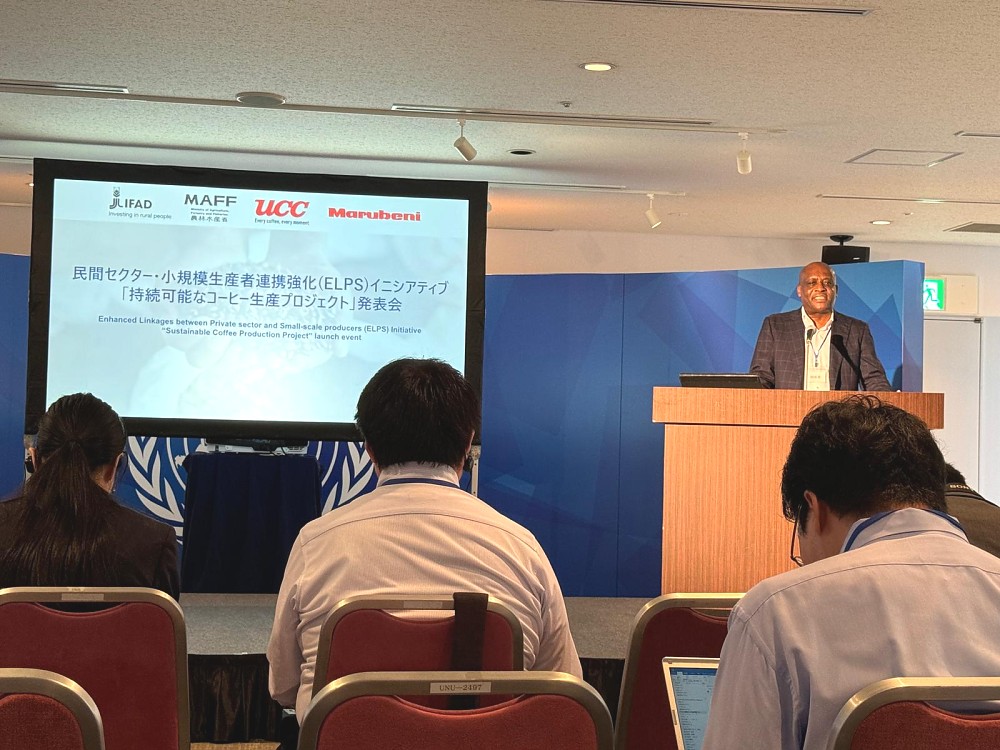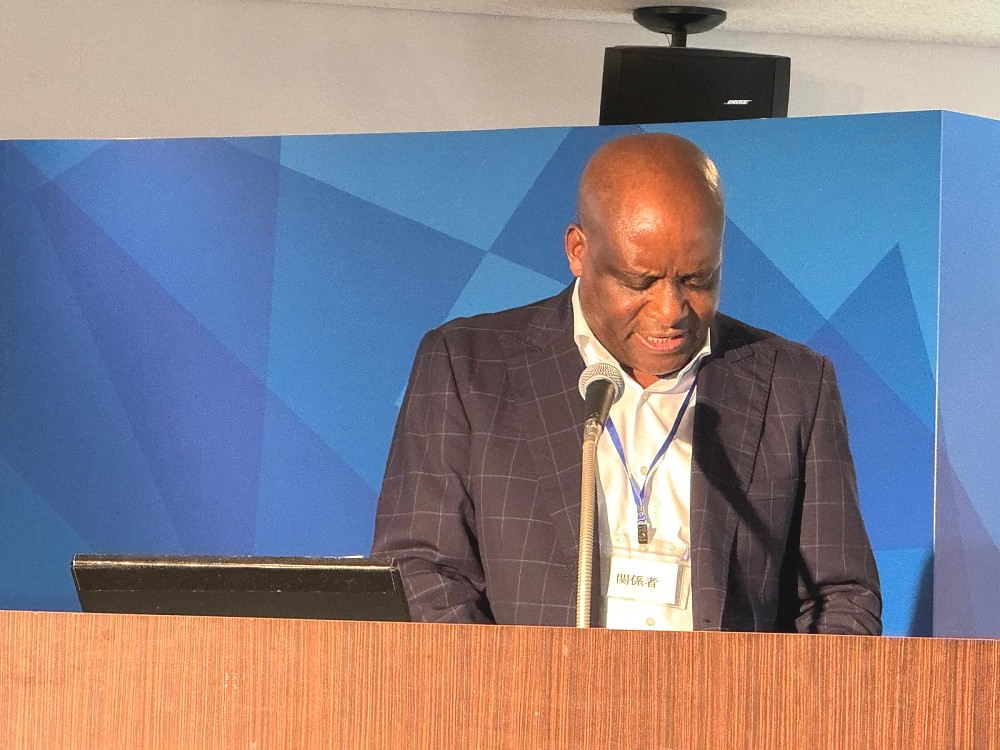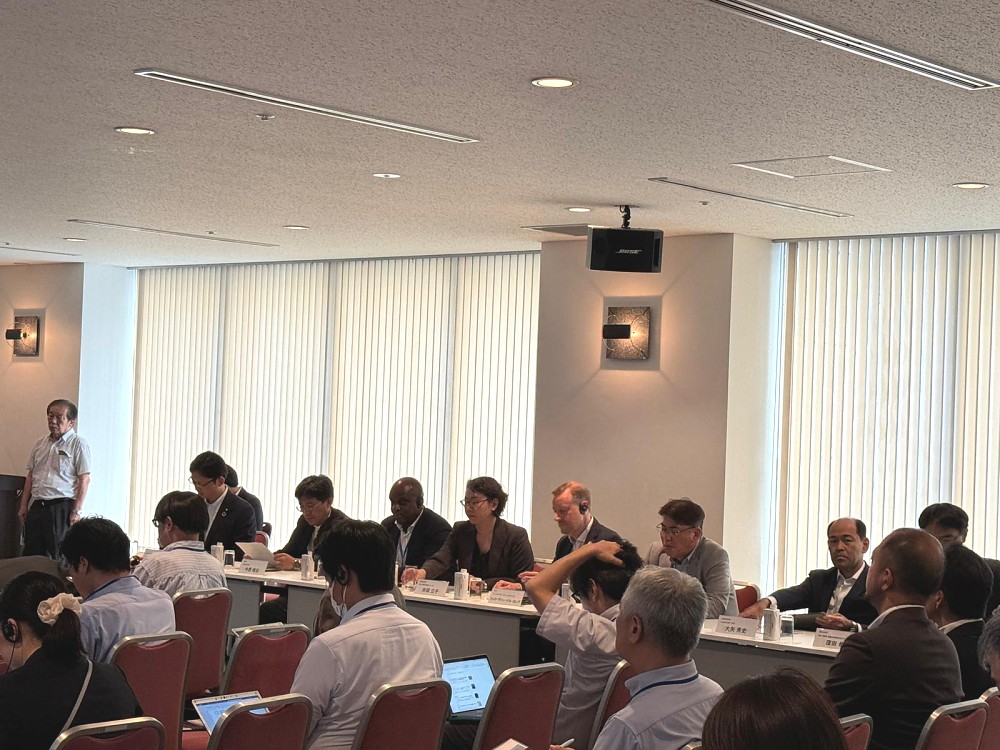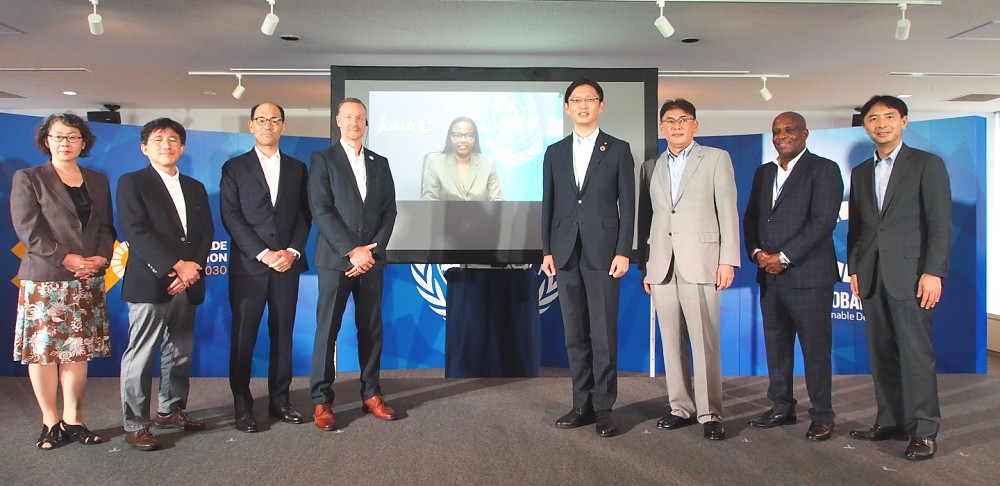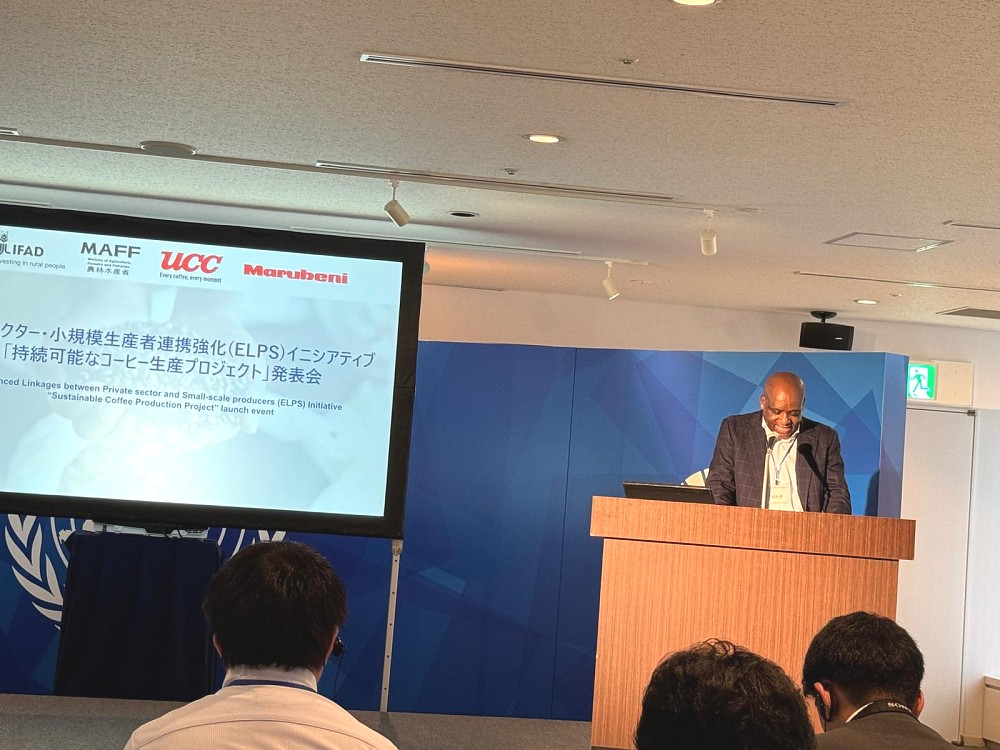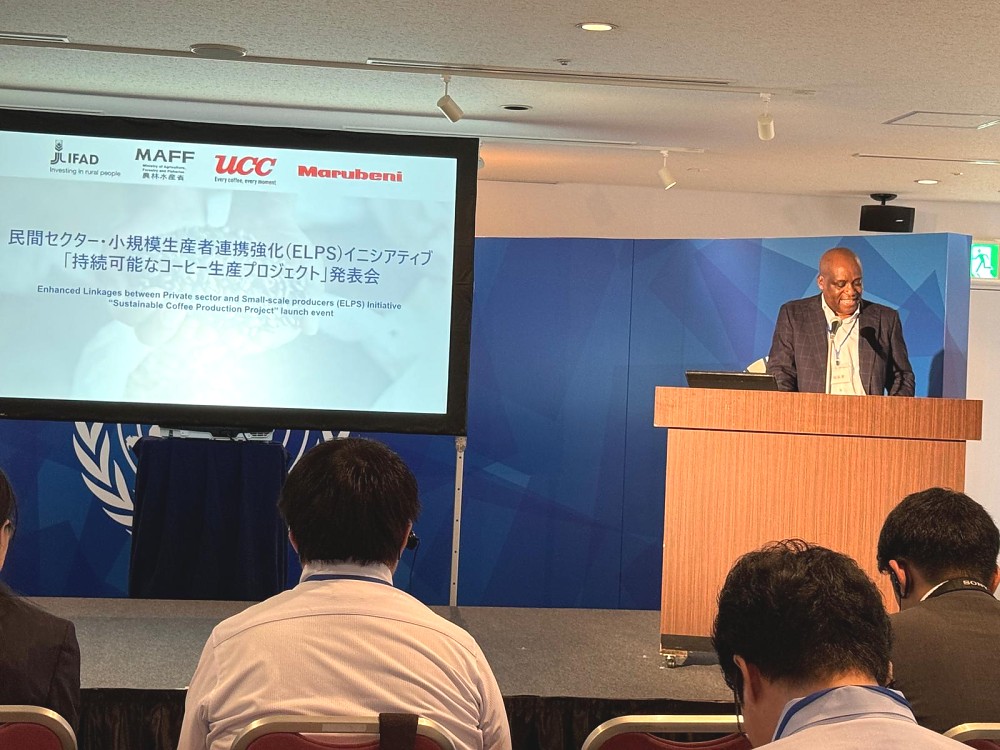Distinguished Guests, Dear Participants, Ladies and Gentlemen,
Jambo, Kon’ni chiwa!
1. It is an honor and privilege for me to have been invited to speak at this important occasion of the launching of Essential Lifeblood of Productive Smallholders (ELPS) Initiative which is part of the Sustainable High Quality Coffee Production beyond 2050.
At first glance, it is a tempting indulgence especially being the last speaker! For, it carries the risk of overburdening the impressive statements delivered by these Distinguished Personalities. If I were to have remained attached to judicial tradition, I would have simply stated: ‘I have nothing useful to add.’
2. Let me however remain sincere to my intentions of offering you the most skeleton of remarks, in honor of IFAD and the Government of Japan for this great initiative. It is especially heartening that you selected Tanzania out of many to implement the initiative. We appreciate that decision and we do not take it for granted. In the same vein, I thank Marubeni and UCC for partnering in these noble endeavors.
I take it that the decision honors Tanzania’s richness in resources, especially coffee and its contribution into the world’s market, generally, and in Japan in particular, where Kilimanjaro Coffee stands out among the top three revered coffee brands with exceptional flavours. For us, coffee is more than just a commodity: it is an essential source of income for millions of smallholder farmers and their families. It is an important export crop for our economy and has a strong cultural significance that is deeply rooted in our country’s heritage.
3. Dear Friends, despite Tanzania's global recognition in the coffee industry, we only have managed to produce an average of 80,000 tons of clean coffee annually, constituting approximately 1% of global coffee production. Of this, about 60% is Arabica, while the remaining 40% is Robusta coffee. We only consume 7% of the coffee produced, while the remaining 93% is exported into the global market, with Japan being the major importing country, accounting for 34% of all exports. Sadly, we can only cultivate coffee in 191,500 ha out of the suitable 741,815 ha that are suitable for that!
4. Dear Friends, like many others the coffee industry in Tanzania faces various challenges, akin to many agricultural sectors globally, including climate change and market volatility. Small-scale coffee producers, who form the backbone of the industry, continue to strive to sustain their livelihoods. Addressing these challenges necessitates robust collaboration, innovation, and a steadfast commitment to sustainability.
5. In addressing these challenges, we have undertaken several initiatives, including collaborating with key stakeholders to enhance productivity through rehabilitating unproductive farms; providing extension services; distributing 20 million high-quality seedlings annually to farmers; promoting contract farming; and implementing fertilizer distribution schemes to address low fertilizer usage throughout the country.
6. It is worth mentioning that the Government of Tanzania has designated coffee as a strategic crop due to its economic and social significance. By and large, coffee industry in Tanzania generates employment to over 400,000 smallholder farmers and 111 Coffee Estates, supporting over 2.4 million individuals indirectly engaged along the coffee value chain, making significant contribution to the country's GDP.
7. In addition, the Government, has undertaken several other measures to ensure conducive business environment and to attract domestic and foreign investment in the coffee industry, including through streamlining the number of licensing and regulating institutions, reducing certain fees, digitalizing company and license applications, and strengthening a one-stop center for investors. The Government is also committed to maintaining predictable policies and legislation, engaging stakeholders, and offering incentives to investors.
For us, the launching of this initiative today is an endeavor that goes beyond the launching of a project. We will continue to strengthen the links between the private sector and small-scale producers in the country to create a supportive ecosystem that promotes resilience, efficiency, and sustainability in the coffee industry by bridging the gap between the private sector and small-scale producers.
8. I am quite certain that the ELPS initiative will bring to bear the coffee supply chains in Tanzania through the provision of technical assistance, the introduction of innovative farming techniques, and the expanded market access for small scale producers. I am also certain that the initiative will continue to empower farmers with the tools and resources necessary to increase yields, enhance quality, and mitigate the impacts of climate change, thereby safeguarding the future of coffee and supporting the prosperity of the communities that depend on it.
9. Dear Friends, when examined more closely, the theme of today namely, "Towards a World Where We Can Drink Delicious Coffee in 2050," resonates well with our shared responsibility to ensure that future generations continue to enjoy this cherished beverage.
It is common knowledge that achieving this goal requires a focus on sustainability at every stage of production and consumption, including protecting the environment, conserving biodiversity, and reducing carbon emissions. Sustainable coffee production also involves adopting climate-smart agricultural practices, ensuring fair and equitable trade practices, and promoting inclusive economic growth that benefits even the small-scale producers.
It is therefore quite appropriate to say that this initiative is an important step toward achieving those goals, and I am confident that this kind of partnership will serve as a model for many others.
10. In closing, I wish to reiterate the commitment of the Government of Tanzania to the success and full realization of this project. We see and are quite hopeful that it will succeed in transforming coffee industry in Tanzania: ensuring its sustainability, and bringing prosperity and smiles to our farmers, such that come year 2050, we will be able to savor the taste of delicious coffee, above all; we will be able to foster the much-needed socio-economic developments in our country.
I thank you.
